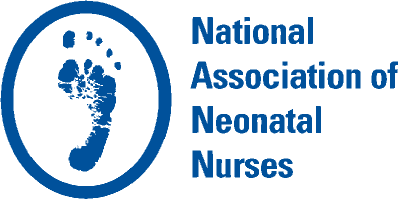NANNP Corner
Nurses Don’t Play Cards
Elizabeth Welch-Carre, EdD MS APRN NNP-BC
The debate among nurses about entry-into-practice education requirements for registered nurses and nurse practitioners continues (Nursing Licensure, n.d.; Sebastian, Trautman, & Cary, 2018; Smith, 2017). These debates have been going on for years. The requirement of a bachelor’s degree as entry into practice for registered nurses was introduced by the American Nurses Association in 1965 (Smith, 2010), and in 2004 the American Association of Colleges of Nursing formally recommended that the doctorate of nursing practice be required for entry into practice for nurse practitioners. Some could argue that nurses do not seem able to agree on some important topics. However, when Washington State Senator Maureen Walsh made a comment about nurses playing cards at work, nurses could not have been more united in their response.
House Bill 1155 was introduced in the Washington State Legislature on January 15, 2019. In the bill’s original form, the intent was to provide protected time to nurses (and to other health facility employees) for breaks and meals. Furthermore, the bill mandated that healthcare facilities could no longer require employees to work overtime. This bill was to be applied universally to all healthcare facilities, including critical-access hospitals. An amendment was added to the bill that would exempt critical-access hospitals from these mandates. Sen. Walsh supported this exemption and declared on the State Senate floor, “By putting these types of mandates [for protected meal and break time] on a critical access hospital (CAH) that literally serves a handful of individuals, I would submit to you those nurses probably do get breaks. They probably play cards for a considerable amount of the day.” Needless to say, that declaration created an uproar among many, including nurses. Later Sen. Walsh added an amendment to the bill that would limit shifts to 8 hours because “if we have an issue with nurses getting tired, let's quit letting them do 12-hour shifts, let's let them do 8-hour shifts.” The amended bill passed in the Senate, and Sen. Walsh voted against it. A similar bill, without the additional amendments, was passed in the House. The current plan is to send the new amended Senate bill to the House for a vote.
Sen. Walsh’s statement that nurses “play cards for a considerable amount of the day” was a tactless account of what nurses do on a daily basis. Over my 26 years as a nurse and a nurse practitioner, I have not played cards once while at work, nor do I know any nurses who have. I suspect that Sen. Walsh was trying to make a distinction between the workload that might exist at a rural hospital with fewer than 25 beds and the workload that exists at a larger hospital where nurses are assigned to work in specific service lines. What Sen. Walsh did not seem to grasp was the difference in staffing models that exist between a larger hospital and a CAH. In a CAH, nurses have to be generalists and ready for any type of patient who might come through the door. Nurses in those hospitals have no more time to play cards than the nurse in a busy intensive care unit. Furthermore, it is important to acknowledge that everyone must be able to take a break and eat a meal without being interrupted by work-related issues. Additionally, no one should be forced to work overtime because this can contribute to burnout.
As noted earlier, Sen. Walsh was able to sneak in a second amendment that would prohibit nurses from working more than 8 hours in a 24-hour period. The legislative change in shift length may be the issue around which nurses should rally. Research about the benefits and costs of 8-hour versus 12-hour shifts is mixed (Dempsey, 2016; Stimpfel, 2012). However, it is unlikely that nurses or hospitals are prepared for such a change (Dempsey, 2016). Unfortunately, as the bill is currently written, in order for nurses to have protected time for breaks and meals, and to be protected from mandated overtime, shift lengths would also be limited to 8 hours. None of us likes to be accused of not doing our job, and particularly by someone who has no experience as a nurse. Yet we need to be sure that we do not miss other issues that may be lost in the “noise” that follows such criticism. In this case, limiting the number of hours that nurses are allowed to work in a 24-hour day to only 8 hours without receiving any input from the nursing profession may be the biggest insult of all.
References
Dempsey, C. (2016). The question of 12-hour shifts. Retrieved from Press Ganey: http://www.pressganey.com/docs/default-source/industry-edge/issue-4-may/the-question-of-12-hour-shifts.pdf?sfvrsn=2.
Nursing Licensure. (n.d.). The future of associates degree in nursing programs. Retrieved from Nursing Licensure: https://www.nursinglicensure.org/articles/adn-program-future.html.
Sebastian, J. G., Trautman, D.E., Cary, A.H. (2018). Moving ahead with the transition to the doctor of nursing practice. Nursing Outlook, 66(2).
Smith, A. (2017). Debate continues on nursing degrees. Retrieved from Inside Higher Education: https://www.insidehighered.com/news/2017/12/22/battle-over-entry-level-degree-nursing-continues.
Smith, T. (2010). A policy perspective on entry into practice issue. The Online Journal of Issues in Nursing, 15(1).
Stimpfel, A. S. (2012). The longer the shifts for hospital nurses, the higher the level of burnout and patient dissatisfaction. Health Affairs, 31(11).


